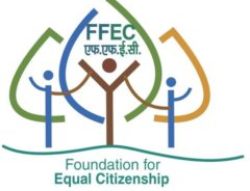Annual 2020-21
1. Groceries and food distribution during the Covid lockdown
During the lockdown FFEC’s Kadam Learning Ce
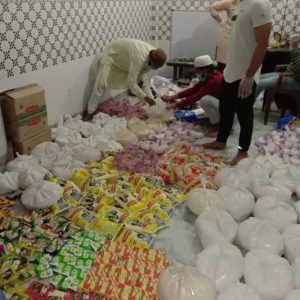
nter was turned into a warehouse for groceries. We were able to distribute groceries (rice, wheat, pulses, oil, soap, sugar and salt) to more than 200 poor
families in Trilokpuri, a slum in East Delhi. Families selected were those who had no income and were struggling to feed their families due to the COVID-19 lockdown. They are mostly migrant, daily wagers working as rickshaw pullers, carpenters, house painters or hawkers.
Starting with just our Center’s program manager working on this project, the list of volunteers from different blocks grew to 22, coordinating in different blocks identifying the neediest and reaching out to them.
We were also able to support a community kitchen in block 32 by providing groceries and vegetables. About 150-200 people were able to have freshly prepared meals everyday. On a need basis, as news about hungry migrants walking on the Delhi-UP highway reached the community kitchen, our team was able to mobilize a truck to distribute meals to them regularly.
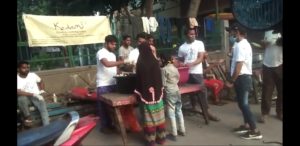
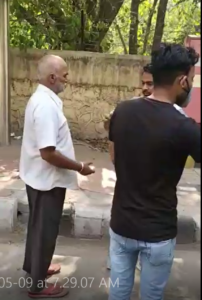
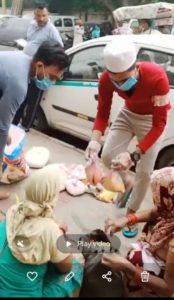
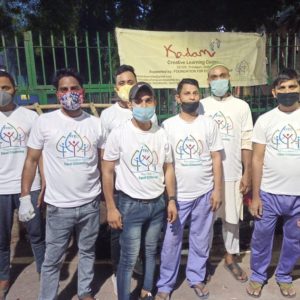
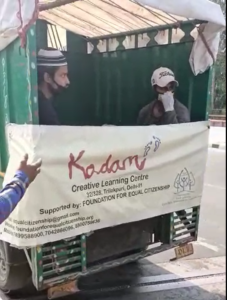
2. Children’s Learning Center-Kadam
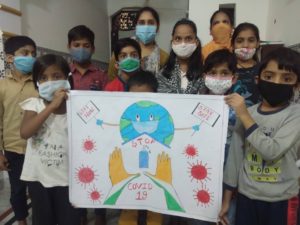
Our after-school gained more visibility after the food distribution. Once the situation improved classes were restarted in September and the number of students increased. As a res
ult we had double our sessions to 5 regular ones and one for class 12 students preparing for board exams. Kids were given masks to protect themselves.
Going forward we would like to focus more on educating the youth about different opportunities available after school and assist in examination preparations for colleges like Jamia Millia Islamia.
3. Youth empowerment – Mentorship and career counseling
20 students of class 11, 12 and dropouts/with compartment who were tutored and guided for board and entrance examinations as well as college admissions were able to join a college. We had realized a need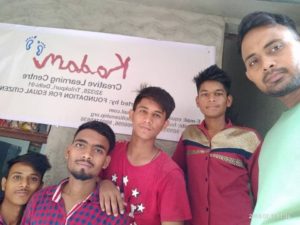 for guidance during college admissions from our experience previous year when we found some students who had attended workshops at our center were unable to get admission into colleges. Many of them are unaware of when and where to apply, missing out deadlines. Due to this gap we started this initiative and hope to grow and cater to more aspiring students in the coming years.
for guidance during college admissions from our experience previous year when we found some students who had attended workshops at our center were unable to get admission into colleges. Many of them are unaware of when and where to apply, missing out deadlines. Due to this gap we started this initiative and hope to grow and cater to more aspiring students in the coming years.
Akib, 2nd from left in the above picture didn’t clear class XI. His father passed away a couple of years ago and his elder brother wants him to join him and sell fish. After coming to Kadam and taking one-on-one tutoring, we topped in his class 12 board exams.
Yet, due to family pressure he joined his brother in selling fish and didn’t apply to any college. We persuaded his family by offering to pay for a year long course in web development at Oxford Institute. FFEC raised money for Akib through crowdfunding. Due to Covid lockdowns, his classes were suspended for a few month. He should be able to complete once the classes resume and find a job.
4. Rural education
Since the Center was closed for classes during the lockdown, the team took an initiative to teach kids of migrant families living on the banks of the river Yamuna close to Trilokpuri. It was a learning experience for the children as well as the educators. Innovative tools like using the ground as a writing board and the environment around them were used. Starting with 10 kids within a few days around 60 kids were attending. Women also showed interest and some joined the classes. Unfortunately due to lack of resources we could not continue once the lockdown ended, much to the disappointment of the community.
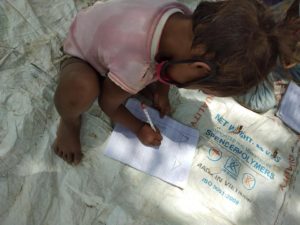
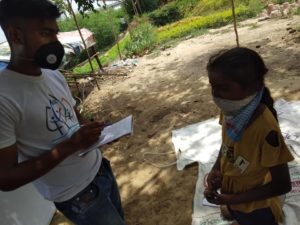
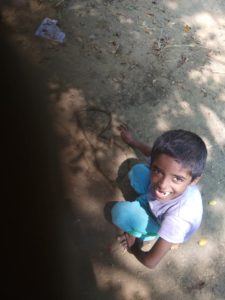
5. Women’s health and empowerment
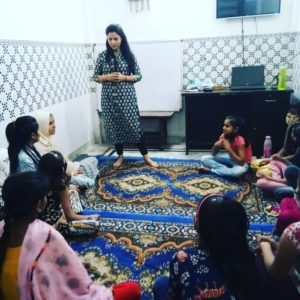 Continuing our engagement with adolescent girls and young women, Sonia, a nutritionist approached our Center to conduct sessions with young girls and women on the significance of a nutritious diet for women, education about menstrual health, hygiene and how it can impact the entire family. She conducted 4 sessions over a period of 3 months.
Continuing our engagement with adolescent girls and young women, Sonia, a nutritionist approached our Center to conduct sessions with young girls and women on the significance of a nutritious diet for women, education about menstrual health, hygiene and how it can impact the entire family. She conducted 4 sessions over a period of 3 months.
Due to the Covid crisis and lockdown we were not able to conduct more sessions on leadership training and empowerment.
